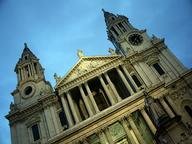Quiz Answer Key and Fun Facts
1. Outlaws were a problem in medieval times (as they have been throughout history) and had to be declared and registered. What was the coroner's role in the registration of outlaws?
2. What was the coroner's role when law officers killed an outlaw?
3. What was an "approvers appeal"?
4. Prior to access to banks and safety deposit boxes, prized possessions were hidden or buried. When these concealed items were discovered, the coroner was summoned to investigate the finding and its possible value to the Crown. To be declared "treasure trove" and of value to the King, certain items must be present. Which of the following would NOT be designated as treasure trove?
5. For which of the following events was the coroner required to be summonsed prior to any public action being taken?
6. In coastal towns, especially in western England, the coroner was tasked to investigate any catches of "royal fish". Which of the following were considered royal fish?
7. For which of the following events was it common for a special writ to be issued to the medieval coroner?
8. Approximately when did medical experts become involved with the coroner in England?
9. If the coroner died who was responsible for ensuring that the coroner's rolls were delivered to the court?
10. The coroner was an English institution, so how did it spread to other countries in Africa, Asia and the Americas?
Source: Author
pshelton
This quiz was reviewed by FunTrivia editor
Exit10 before going online.
Any errors found in FunTrivia content are routinely corrected through our feedback system.
